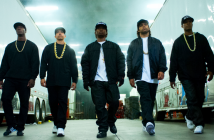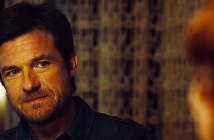
Editor’s Notes: Ricki and the Flash is currently open in wide theatrical release. For more on the film, read Ricki and the Flash: A Wonderful Celebration of Life by Daniel Tucker.
Ricki and the Flash is like Diablo Cody’s version of a stream-of-consciousness narrative. Or maybe it’s just Jonathan Demme’s version of a Diablo Cody screenplay. A little of both may be true, but whatever description one chooses to apply, this latest effort from both Oscar winners is intriguing specifically because it is willing to tackle several issues at its whim, as they arise organically from whatever scenario the characters find themselves in.
Willing to tackle several issues at its whim, as they arise organically from whatever scenario the characters find themselves in.
More intriguing still is that this feels like a new mode of thematic experimentation for both filmmakers. While there are signature off-kilter visual flourishes from Demme, and the characters occasionally rifle off biting one-liners befitting the style Cody practically invented in Juno, the execution feels different, as if they are working in an exploratory style, instinctively striking on specific themes and following each down tangents that may or may not flow easily back into the central narrative.

What, for that matter, is the central narrative here? The trailers would indicate this is a twisted family story in which the black sheep – in this case the title character, Ricki (Meryl Streep), who long ago left her family to pursue a career as a rocker – is summoned home to care for her estranged daughter (played by Streep’s real-life daughter, Mamie Gummer), who is in crisis after being left by her husband. And yes, the notions of broken families and fractured bonds run strong throughout – sort of functioning as the core threads that draw all the disparate strands together – they feel at once a little more stringent coming from Cody, a little softer coming from Demme, and a little more nebulous coming from both.
Cody has layered theme and character more elegantly in previous works, but here there is an urgency, an insistence to unleash ideas that have been boiling within.
After all, the daughter-in-tailspin storyline really only encompasses the film’s first act…and maybe it bleeds over into the second, if only because the screenplay purposely disfigures its own structure. There’s also a pending wedding, for Ricki’s son (Sebastian Stan), to which Ricki is not invited. Much awkwardness results. Ricki’s other son (Peter Demme) is gay, which gets under Ricki’s skin since she is a strident conservative. There still seems to be some spark with her ex-husband (Kevin Kline, very good) even though he’s happily remarried and Ricki’s band partner (Rick Springfield) clearly loves her. And her name’s not Ricki, by the way…it’s Linda. So there are questions of identity…who is she, what did she want to be, what should she be, can she change?
You get the idea…it’s kind of a mess. But that’s purposeful, since life’s kind of a mess, too. And for all of the charges against Cody for being too cutesy with dialogue and too elevated in terms of story and theme, Ricki and the Flash strikes me as her most grounded, most realistically cynical work yet. With Demme’s help, it is delivered with the tone of angry sputters, with observations on class, empathy, and human capacity for growth dropped heavily on top of the narrative, fierce and raw. Honestly, Cody has layered theme and character more elegantly in previous works, but here there is an urgency, an insistence to unleash ideas that have been boiling within. Ricki is the embodiment of misplaced anger, a victim of a sometimes-cruel world, but also a victim of her own making. It’s a very precise and beautiful characterization from Streep, who seems to land an Oscar nomination every year, but my bet would be this work isn’t concrete enough for Academy tastes.
Very little, in fact, is concrete in Ricki and the Flash, which is frustrating from a narrative perspective but invigorating from a thematic one. Can Ricki’s daughter overcome her depression and learn to live again? Maybe, though it’s not made clear. Does Ricki have any right to attend her son’s wedding? Not particularly, since she’s been absent and incommunicative for so long. Is “healing” a realistic goal for a family so fractured and resentful, can they all “be ok”? Maybe and maybe not. In a moment, it seems Ricki the rocker may have the ability to bring everyone together through the magic of song, but what happens after that moment is anyone’s guess. But life, at its essence, is a splintered collection of those moments – some good, some bad, not all of them cohesive yet the sum total of them forging who we are. Ricki and the Flash is all about the moments. Figuring out where they lead is up to us.
Life, at its essence, is a splintered collection of those moments – some good, some bad, not all of them cohesive yet the sum total of them forging who we are. Ricki and the Flash is all about the moments. Figuring out where they lead is up to us.



